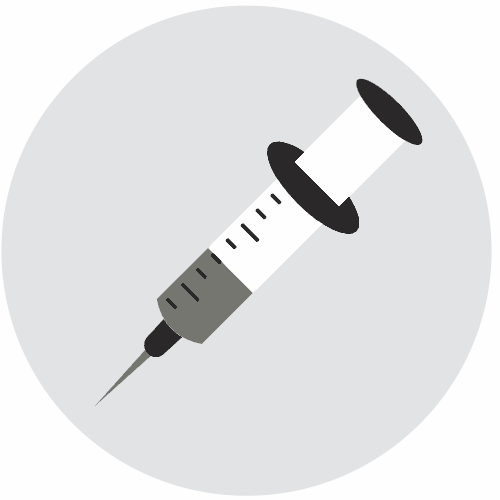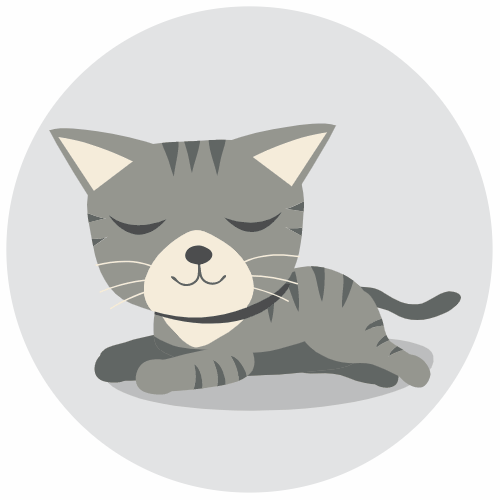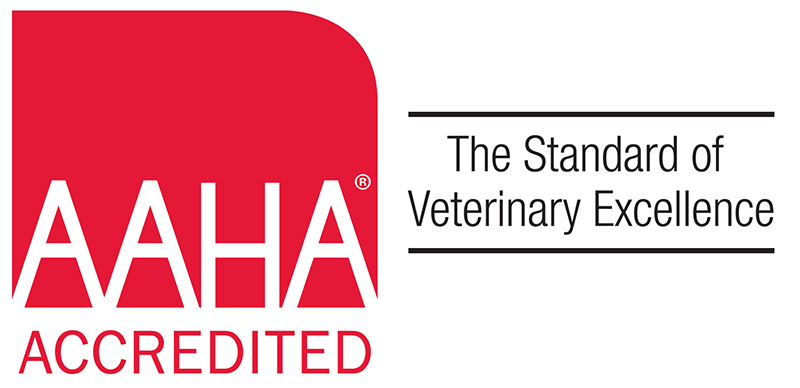Did you recently bring home a
new puppy or kitten
or are you planning on adding one to the family soon? Our veterinarian and the rest of the team at Triangle Animal Clinic want to make sure they get started on the right paw. We typically recommend that all puppies and kittens have a series of comprehensive exams and vaccinations, starting at 8 weeks of age. This will help our team ensure that your pet is healthy and provide treatment options if he finds any health issues.
If your pet is older than 2 months but younger than 1 year, you can still bring them to our animal hospital for specialized puppy or kitten care. When your pet is between 6 and 8 months of age, we recommend that you have them spayed or neutered, which can be done right here in our clinic. Visit our Spaying and Neutering page to learn more.
About Your Pet’s First Three Exams
During your pet’s first exam, we will perform a thorough physical assessment, including a check of their weight, teeth, joints, skin, and all of their vital signs. Be sure to bring a fresh stool sample to the first and third visit so we can test your pet for internal parasites as well. We will also administer the following vaccines:
First Visit - 8 Weeks
- Kittens: FVRCP
- Puppies: DA2PP and Bordetella
Second Visit - 12 Weeks
- Kittens: FVRCP booster
- Puppies: DA2PP booster and leptospirosis
Third Visit - 16 Weeks
- Kittens: FVRCP booster, FeLV, and rabies
- Puppies: DA2PP booster, leptospirosis, and rabies
You can learn more about our vaccine protocols listed in the chart above by visiting the Pet Vaccinations page.

Spay/Neuter Your Pet
Depending on the breed and age of your pet, your veterinarian will suggest a plan on when it is most beneficial to fix them. We will commonly discuss this during their final puppy/kitten exam, but if you have any questions or concerns before then, we are more than happy to answer!
Setting a Potty Training Schedule
- First thing in the morning
- Last thing at night
- After spending time in a crate
- Upon waking up from a nap
- After eating or drinking
- Time between potty breaks
should be no more than 2-4 hours
Crate Training Your Puppy
- Dogs like clean “home” areas and are less likely to have accidents
- Place crate near exterior door for quick relief
- The crate should be big enough for your puppy to stand up, turn around, and lay down
REINFORCING GOOD BEHAVIOR
- Don’t scold your puppy for having an accident
- Praise them for doing the right thing
- Reward them with treats, pats, and attention
How to stop bad behavior
WHAT CAN MY PUPPY CHEW ON?
- Chewing is a calming mechanism for puppies
- Keep chewing toys around the house; when they start to chew on toys instead of household objects, give them praise
HOW DO I STOP MY PUPPY FROM BARKING?
- Scolding your puppy when they bark can make it worse; instead, ignore barking and praise quiet
- Training your dog to sit helps them fight impulsive barking when they want something
HOW DO I STOP MY PUPPY FROM BEGGING AT THE TABLE?
- Feed them first before you eat
- Create a cozy “go-to” spot near the table where they can be comfortable
- Praise them with treats when they don’t beg
How to feed your puppy
HOW OFTEN DO I FEED MY PUPPY?
- 6-12 weeks: 4x a day
- 3-6 months: 3x a day
- 6-12 months: 2x a day
- After a year: 2 half portions a day
- Watch your puppy to gauge if they are eating healthy
WHAT FOOD SHOULD I FEED MY PUPPY?
- Look for AAFCO guidelines
- Look for age and health specific formulas
- Ask your vet for tailored recommendations
WHAT ARE HARMFUL FOODS FOR PUPPIES?
Dairy, chocolate, grapes, and sugary foods, snacks, or desserts
What you should buy for a kitten
- Scratch posts (helps preserve furniture!)
- Litter boxes, cat carriers, and food and water bowls
- Stain and odor remover
What you should move out of the way
- Toxic plants
- Cleaners and sprays
- Any dog food that might be in the house
How to make your cat comfortable
- Bed and blanket
- Small, cozy space
- Grooming supplies
- Pheromone products
How you should play with your kitten
HOW DO I PLAY SAFELY WITH MY KITTEN?
- Use balls, jingles, anything on a string, and cotton chew toys
- Avoid “play” with your hands to avoid injury when full grown
WHAT ARE THE BENEFITS OF PLAYING WITH YOUR KITTEN?
- Strengthens your bond with your kitten
- Allows them to release energy that could lead to damage
- Builds trust and comfort for them within a new home
HOW OFTEN SHOULD I PLAY WITH MY KITTEN?
- 20+ minutes of play per day
- Set aside at least two times a day preferably early in the morning and late at night
How to feed a kitten
HOW OFTEN SHOULD I FEED MY KITTEN?
- Dry food only: leave available at all times
- Wet food only: feed at least four times a day
- Combo: feed wet food twice a day and leave dry food available
WHAT SHOULD I FEED MY KITTEN?
- Look for AAFCO guidelines
- Look for age and health specific formulas
- Ask your vet for tailored recommendations
WHAT ARE HARMFUL FOODS FOR KITTENS?
- Raw meats, eggs, raw fish
- Grapes, chocolate, and dairy






